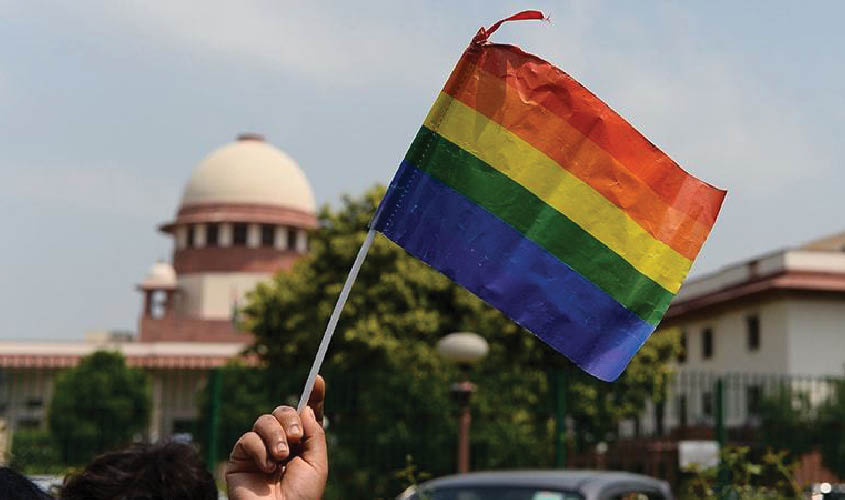Each individual has his or her likes and dislikes, peculiarities and angularities. Unless these be clearly and majorly harmful to society in general or to elements of it, such differences need to be accepted rather than condemned. Those who regard same-sex relationships as being aberrant have a right to hold a view which would have made them welcome guests in Queen Victoria’s palace. However, they lack the moral right to impose such views on others through the force of law. A government may be formed by the vote of a minority of its citizens, and indeed, the BJP secured its majority in the Lok Sabha despite polling less than a third of the votes cast. However, once in office, the oath taken by each minister makes it obligatory for the person on whom such a weighty responsibility has fallen to look towards the good of all rather than a few, or even the many at the expense of the few. Prime Minister Narendra Modi spoke the truth when he declared that the precious inheritance of rajdharma mandated that the Prime Minister look for policies embodying “sabka saath, sabka vikas”. It is welcome that his government did not oppose the move to decriminalise same-sex relationships in the manner of some of its predecessors, just as it is noteworthy that Sonia Gandhi did nothing to ensure that laws and administrative practices in India moved from the 19th century to the 21st. Instead, her favoured duo of P. Chidambaram and Kapil Sibal delighted in crafting and getting passed laws that it would be an understatement to term “draconian”. Unfortunately, instead of doing away with such democracy-felling enactments, the NDA government chose to retain them and sometimes even add to their rigour. This was no surprise in a context where bureaucrats wield enormous power within the new government, despite the PM’s efforts to ensure maximum governance through ensuring horizontal replenishing of the senior ranks even of the IAS, the successor to the colonial-era Imperial Civil Service. The Information Technology Act that was introduced by IT Minister Pramod Mahajan during the Vajpayee period so as to get government a bigger say in the fast-growing industry was a blow against its vitality, and it was no surprise that the IT Act was prodded further into regression under the UPA. Indeed, those in power during that period exulted in their control over the common citizen as a consequence of the colonial laws and practices that they embraced with abandon, ensuring for example that the level of protocol bestowed on UPA chairperson Sonia Gandhi was the same as was given to Prime Minister Manmohan Singh, a frequent visitor at 10 Janpath who wholly justified the confidence of his patron Sonia Gandhi that he would never seek to overshadow or ignore her. In the onrush of hope and expectation engendered by the decision of the Supreme Court under Chief Justice Dipak Misra to strike down Article 377, would it be too much to expect that the sections permitting the criminalisation of defamation will get removed as well through judicial fiat? Incoming Chief Justice Ranjan Gogoi carries on his shoulders the immense expectation of the public that his term will see a flowering of citizens’ rights and freedoms rather than the depressing fare of bureaucratic control that has been the lot of the 1. 26 billion population of India even after 15 August 1947.
That there are parts of the country that are still moored to 19th century concepts such as enforced abstinence from alcohol shows how far this country has to tread in order to ensure that its citizens get the freedoms they merit. Certainly drink is a social problem and drunkenness a curse. But this cannot be eradicated by legislative fiat or judicial verdicts but through patient work among social groups educating them about the benefits of temperance. Seeking to remove what are considered by some to be social evils through the bludgeon of law imposed through a police force that few would deny is less than wholly honest is a recipe for disaster. Almost every day in some part of states that impose prohibition, individuals sicken or die as a consequence of bootlegged alcohol. This newspaper believes that the people of India are sick to the gills of the 19th century and seek a government such as would ensure an ascent to the 21st for the masses of the people still disadvantaged as a consequence of defective policies clumsily and carelessly implemented. Which is why the country overall has welcomed the stand taken by the Supreme Court (against the views of some of its past judges, who loyally remained loyal to Victorian values and regulations) in the matter of Article 377. The Sunday Guardian congratulates the Supreme Court for this necessary decision, and looks forward to the nation’s highest court backing civil society, rather than accepting the reality of governance in India, which is the persistence of colonial regulations, laws and practices. Bravo, Your Lord and Ladyships! May there be encore upon encore.

